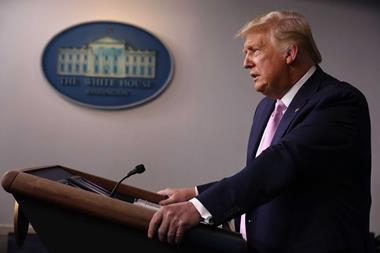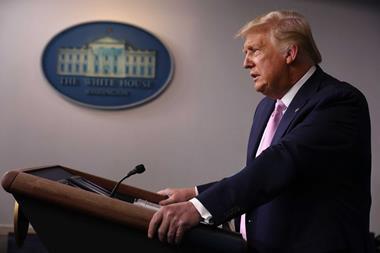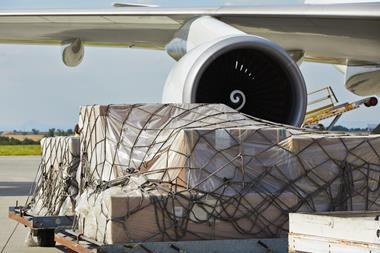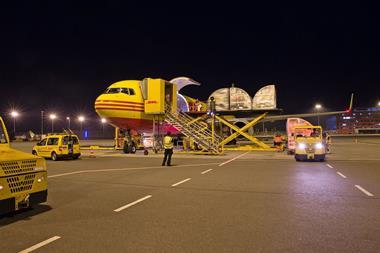
Source; Jonah Elkowitz/ shutterstock
US president Donald Trump has confirmed that a 25% tariff on imports from Canada and Mexico will be applied from 4 March, while he has also announced a further 10% tariff on goods from China.
The US president has said that the tariffs are part of efforts to reduce the flow of drugs into the country. On his Truth Social platform, he said that drugs are “still pouring” into the US from Mexico and Canada at “unacceptable levels”.
As a result, tariffs of 25% will be applied to goods from the two countries from 4 March, he said.
The Trump administration first confirmed plans to implement tariffs on the two countries in January. However, the implementation was at the last minute delayed until March after discussions with the two countries.
Meanwhile, he also announced a further 10% tariff on imports from China in addition to the 10% implemented in February.
Trump has accused China of making and supplying the drugs that enter the US.
"More than 100,000 people died last year due to the distribution of these dangerous and highly addictive poisons,” he posted. "Millions of people have died over the last two decades. The families of the victims are devastated and, in many instances, virtually destroyed.
"We cannot allow this scourge to continue to harm the US, and therefore, until it stops, or is seriously limited, the proposed tariffs scheduled to go into effect on 4 March will, indeed, go into effect, as scheduled. China will likewise be charged an additional 10% Tariff on that date."
China has vowed to implement countermeasures in response.
Flexport said the new tariffs won’t impact the de minimis exemption, which remains in place temporarily until “adequate systems are in place to fully and expeditiously process and collect tariff revenue,” for those affected countries.
"President Trump also indicated that more tariffs are on the way beginning in early April, when senior administration officials are expected to present recommendations for his “reciprocal tariff” plan," Flexport said.
Trump is implementing the tariffs under the International Emergency Economic Powers Act (IEEPA) as a measure to tackle the "extraordinary threat posed by illegal aliens and drugs” and illegal immigration.
The president has also threatened to implement tariffs of 25% on the European Union.
Air cargo observers fear that a trade war and trade barriers could impact growth expectations for the coming year.
Air cargo association Tiaca said that it expects demand to grow at around 5% this year but added that there are "elevating risks" to this expectation.
Tiaca director general Glyn Hughes said that because of political and policy changes, there is an elevated risk attached to expectations of growth in e-commerce.
Meanwhile, a recent report from business research group The Conference Board shows that US consumer confidence is declining because of expectations for rising inflation in part related to the tariffs introduced by president Trump and how that will impact finances.
Tariffs and trade barriers are also resulting in extra complexity, Hughes said.
"The situation is very fluid but the thing that concerns us more than anything else is the fact that trade and tariffs are being politicised and weaponised in the political forum. We believe that international trade and aggregation and integration of economies is a way for global prosperity and global prosperity is the best way to secure peace."
The US is also due to re-implement its ban on the de minimis exemption for goods from China next month.
However, Hughes said it was more likely to be two to three months before CBP can "look at implementing the appropriate systems".
He added that there was also a proposed rule-making in the works that would require extra shipment information to be submitted for all de minimis shipments regardless of origin.
"That would add significant cost and complexity," he said. "A filing for an e-commerce shipment that is worth $5 could be another $5 or $10 in terms of filing fees and administrative costs so that could have a very serious impact on inbound e-commerce activity.


















